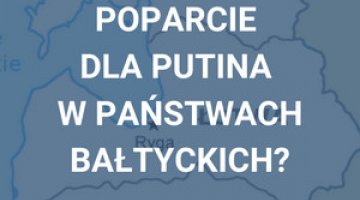Lithuania is forcing the gas monopoly to sell pipelines
Lithuania’s Seimas adopted an amended gas law on 30 June. Lietuvos Dujos (LD), the largest wholesale supplier and the monopoly on the Lithuanian gas distribution market, will be split into individual companies dealing with gas transport and trade. The network of gas mains owned by this company is to be sold to an entity which is not connected to either Gazprom or any other gas supplier. The split of LD, one-third of whose shares are controlled by Gazprom, is to be finalised by July 2013. In the opinion of the Lithuanian government, this implementation of the strictest solutions under the EU Third Energy Package will cause a reduction in the gas price for Lithuania.
The amendment of this law was also supported by political parties unrelated to the right-wing government coalition, which has been pushing through the split in ownership in the gas sector. The Labour Party led by Viktor Uspaskich, a former intermediary in gas supplies to Lithuania from Gazprom, and the Order and Justice party led by the impeached president Rolandas Paksas, who was accused of yielding to Russian influence, also backed the changes. The Social Democrats, under whose rule LD’s shares had been sold to Gazprom (which holds 37.1% of the shares, compared to E.ON Ruhrgas which controls 38.9% of the company, and the 17.7% which is held by the Lithuanian state).
Lithuania wants to regain control over the gas mains. To improve its energy security, the country is aiming at creating possibilities for alternative gas supplies by building an LNG terminal and an interconnector to Poland. The adoption of the amended gas law is the first step towards the achievement of this goal. The next one will be made when the government takes the decision on the preferred vision of ownership proportions in the company which manages the gas pipelines. The governmental plans to this effect have not been announced as yet.
The major shareholders of Lietuvos Dujos have objected to the company’s split. Gazprom is threatening to appeal to international arbitration and is suggesting it will impose sanctions in the form of new gas price rises. Meanwhile, the government expects that its consistent efforts to improve the competitiveness on the domestic gas market will make Gazprom reduce the gas price for Lithuania, which is now among the highest in Europe. The gas supply contract currently in force will have expired in 2015. Through this Lithuania has demonstrated the solidarity of its political elite who have taken real action to improve their country’s energy security for the first time over the past twenty years. Lithuania is also counting on support from the European Union in its worsening dispute with Gazprom, which is issuing increasingly strong threats of serious consequences for this country. <jhyn>
Lithuania is forcing the gas monopoly to sell pipelines
Lithuania’s Seimas adopted an amended gas law on 30 June. Lietuvos Dujos (LD), the largest wholesale supplier and the monopoly on the Lithuanian gas distribution market, will be split into individual companies dealing with gas transport and trade. The network of gas mains owned by this company is to be sold to an entity which is not connected to either Gazprom or any other gas supplier. The split of LD, one-third of whose shares are controlled by Gazprom, is to be finalised by July 2013. In the opinion of the Lithuanian government, this implementation of the strictest solutions under the EU Third Energy Package will cause a reduction in the gas price for Lithuania.
The amendment of this law was also supported by political parties unrelated to the right-wing government coalition, which has been pushing through the split in ownership in the gas sector. The Labour Party led by Viktor Uspaskich, a former intermediary in gas supplies to Lithuania from Gazprom, and the Order and Justice party led by the impeached president Rolandas Paksas, who was accused of yielding to Russian influence, also backed the changes. The Social Democrats, under whose rule LD’s shares had been sold to Gazprom (which holds 37.1% of the shares, compared to E.ON Ruhrgas which controls 38.9% of the company, and the 17.7% which is held by the Lithuanian state).
Lithuania wants to regain control over the gas mains. To improve its energy security, the country is aiming at creating possibilities for alternative gas supplies by building an LNG terminal and an interconnector to Poland. The adoption of the amended gas law is the first step towards the achievement of this goal. The next one will be made when the government takes the decision on the preferred vision of ownership proportions in the company which manages the gas pipelines. The governmental plans to this effect have not been announced as yet.
The major shareholders of Lietuvos Dujos have objected to the company’s split. Gazprom is threatening to appeal to international arbitration and is suggesting it will impose sanctions in the form of new gas price rises. Meanwhile, the government expects that its consistent efforts to improve the competitiveness on the domestic gas market will make Gazprom reduce the gas price for Lithuania, which is now among the highest in Europe. The gas supply contract currently in force will have expired in 2015. Through this Lithuania has demonstrated the solidarity of its political elite who have taken real action to improve their country’s energy security for the first time over the past twenty years. Lithuania is also counting on support from the European Union in its worsening dispute with Gazprom, which is issuing increasingly strong threats of serious consequences for this country. <jhyn>





